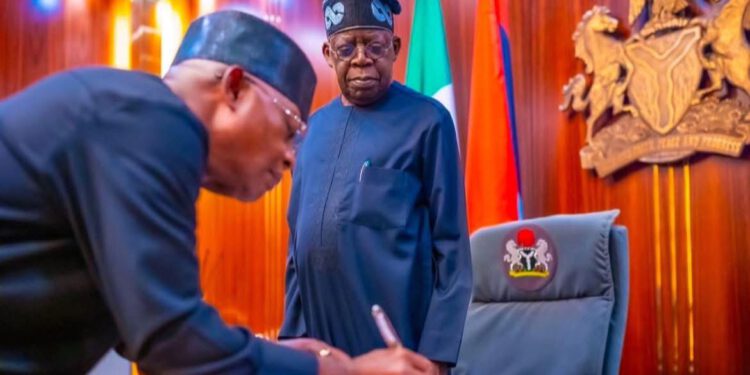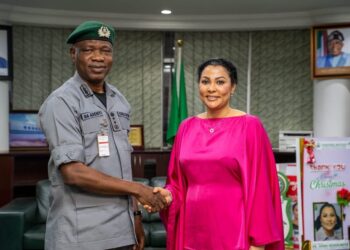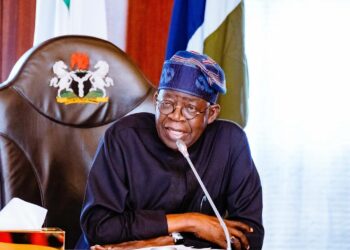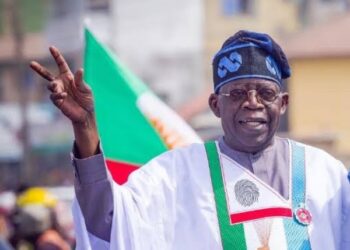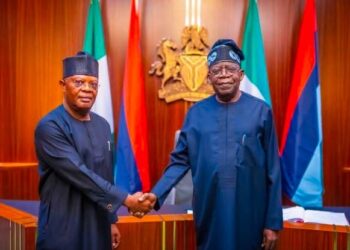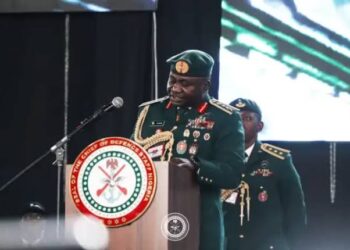By Emmanuel Oladesu/ Deputy Editor
The emergency rule declared by President Bola Ahmed Tinubu in the crisis-ridden Rivers State has sparked hot debate about its conceptual meaning, elements, scope and limitations under the constitution.
For partisan reasons, the decision has generated emotion, particularly among interested parties who delude themselves into thinking that emergency rule does not entail the suspension of a legitimate government at the state level.
Their jaundiced argument is that when a state of emergency was declared by former President Goodluck Jonathan in Adamawa, Borno and Yobe states to tackle the growing insurgency, the democratic institutions – the Executive and Houses of Assembly- were not suspended.
The critics have uncritically confused a state of emergency declared to salvage an ailing sector with the declaration of an emergency rule in a sub-national unit of the federation about to be plunged into violence by warring politicians.
While they cleverly highlight the limited similarities between the two forms of critical intervention, they are eager to de-emphasise the glaring differences.
Both instances – a state of emergency declared in a troubled sector and comprehensive emergency rule – are targetted at problem solving, but in varying degrees.
Generally, a state of emergency is perceived as “a special legal regime designed for extraordinary circumstances, which enables the government to act in ways that it could not under the ordinary legal framework.”
It is a situation in which a government is empowered to put through policies that it would normally not be permitted to do, for the safety and protection of its citizens. A government can declare such a state of emergency before, during, or after a natural disaster, civil unrest, armed conflict, medical pandemic or epidemic or other bio-security risk.
However, while a state of emergency can be declared by the president in sectors like education, health, agriculture and security, such a state of emergency can be accomplished through an Executive Order or mere presidential pronouncement.
In this circumstance, the President is not mandated or required by the constitution to make a recourse to the National Assembly for approval or consent.
Thus, when former President Jonathan declared a state of emergency in the three states, his goal was to arrest the grave security situation by deploying more troops and strengthening them to tackle bandits who were making life difficult for residents and assaulting national sovereignty.
The governors had raised the alarm that many local governments were occupied by members of Boko Haram sect, who were disrupting socio-economic activities.
There was no protracted political crisis in Adamawa, Borno and Yobe when those actions were taken by the president. The actions were not directed against the legitimate governments and democratic institutiond in the three states. In fact, the three governors invited the president for urgent assistance, because as camouflage chief security officers of the troubled states, they lacked power over the security agencies – the police, Army, Navy and Air force.
Apart from the president, the governor of a state can declare a state of emergency in any sector or in any local government when he believes a disaster has occurred or may be imminent, and the problem will be severe enough to require state aid to supplement local resources in preventing or alleviating damages, loss, hardship or suffering.
It means that when a local state of emergency is declared, decision-makers believe, following accurate assessment, that the emergency situation exists beyond the response or recovery capabilities of the local jurisdiction. The enactment of such a directive will enable the state authorities to initiate local emergency preparedness and response actions.
Emergency rule is a different ball game. Only the President can invoke the power under Section 305 of the 1999 Constitution, as amended. That was what President Tinubu had done to salvage Rivers. Parliamentary approval is required. There are legal frameworks to follow and timeframe, usually an initial period of six months. If there is justification for extension, the whole process would have to be repeated.
The situations in the old Western Region, Plateau, Ekiti and Rivers state where emergency rule were declared followed the same pattern.
In the Western Region, two Action Group (AG) leaders – Ladoke Akintola and Dauda Adegbenro – laid claims to being Premier.
There was commotion in the House of Assembly. The peace of the region was threatened. To prevent the breakdown of law and order, Prime Minister Abubakar Tafawa Balewa declared an emergency rule in the West and appointed his Health Minister, Dr. Koye Majekodunmi, as administrator for six months. He obtained approval from the National Parliament.
In Plateau, there was breakdown of law and oder, following the escalation of ethnic and religious tension that engulfed the state. Former President Olusegun Obasanjo, who accused the former governor, Joshua Dariye, of taking sides in the conflicts, suspended him and the House of Assembly after declaring an emergency rule.
Former Chief of Army Staff, Major General Chris Alli was appointed administrator for six months. He later informed the National Assembly for approval.
In Ekiti, after former Governor Ayodele Fayose was impeached in a controversial manner by the House of Assembly, three people- Fayose, his deputy, Mrs. Biodun Olujimi, and Speaker Friday Aderemi – laid claim to the number one position. There was confusion. To prevent likely breakdown of law and order, Obasanjo declared an emergency rule and appointed Gen. Idowu Olurin as administrator. He got parliamentary approval later.
In Rivers, only the Executive arm that was not properly constituted had functioned for almost two years. Governor Siminalayi Fubara never allowed the House of Assembly to perform its duties. When the judgment of the Supreme Court compelled him to obey the constitution, he was reluctant. The state was enveloped in apprehension.
Then, unscrupulous elements started attacking oil pipelines. Instructively, the governor, some weeks ago, had told his wild supporters to wait for some inexplicable directives.
There is a line of demarcation between some forms of urgent intervention by the Federal Government to halt some emergencies and problems in some critical sectors not triggered by protracted political crises, and an emergency rule characterised by the suspension of elected government and Parliament to prevent escalation of conflicts and imminent slide into avoidable violence and choas.


